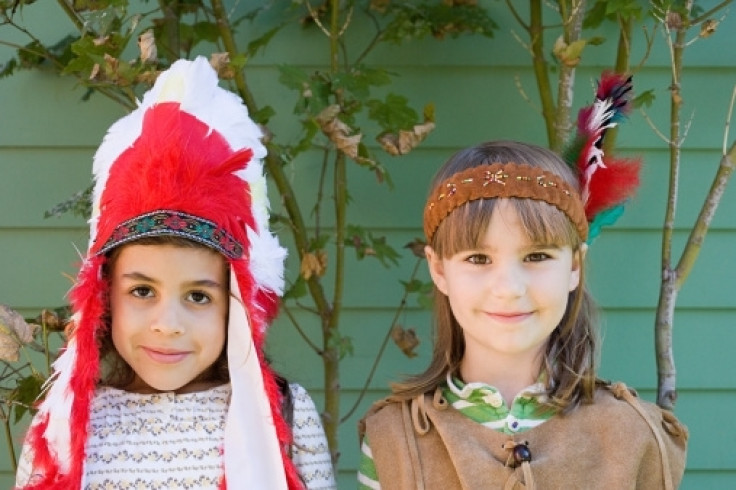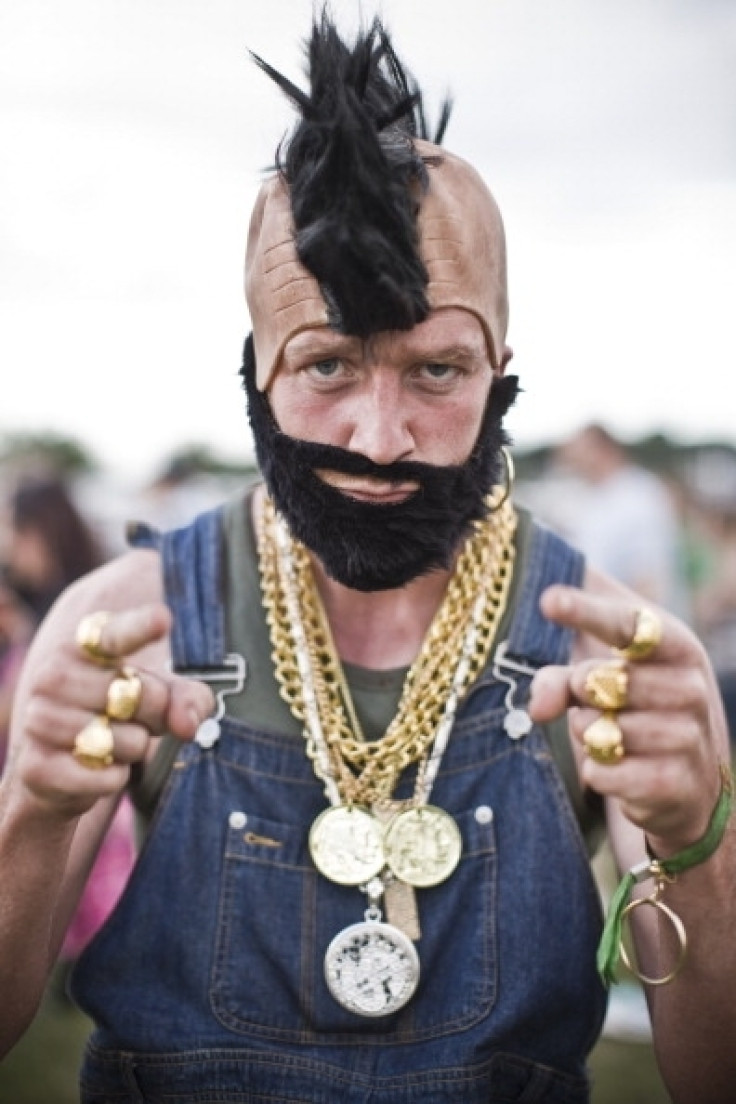Cultural appropriation: A guide to avoiding it this Halloween
Experts weigh in on how to avoid a bad costume.
Halloween weekend is nearly upon us, which means the return of fake blood, fangs and carved out pumpkins. As much of the world prepares to temporarily become their favourite characters, this also opens up the chance for questionable costume choices.
Earlier this week, Cosmopolitan ran an article explaining why parents shouldn't let their child dress up as Moana, Disney's most recent Polynesian princess. It was boldly entitled 'Maybe Don't Dress Your Kid Up As Moana This Halloween?' and considered racially insensitivity, stereotyping and white privilege as reasons to reconsider.
The reaction on Twitter was overwhelmingly negative.
Comments ranged from jibes at liberals to beliefs that they had missed the true meaning of appropriation; much of the internet vehemently disagreed with it.
The added intersection with Cosmopolitan's piece was that it approached the subject through the lens of children and their desire to dress up - an otherwise pure and joyous thing. Infringing on this with cultural politics was bound to be a tough debate.
Celebrating inner #Moana. When children pick costumes it generally reflects admiration. This is a good thing. #everthing isn't racist
— Robin SepkovicPorter (@RobinPorter) October 24, 2017
I'm sorry, but I rather to know my daughter can find beauty and grace in every culture. If Moana and Mulan are her inspiration, I'm happy.
— Ellen Pozzi (@moonlices) October 23, 2017
The real question is why @Cosmopolitan was okay with Disney, a company run predominantly by whites, making "Moana" at all.
— Ben Shapiro (@benshapiro) October 24, 2017
Cultural appropriation has been known to be a really divisive topic with many people arguing the different extents to which it exists.
Journalist Amna Saleem (@AGlasgowGirl) is known for her humorous treatment of growing up in a Pakistani house and told IBTimesUK: "It's the audacity to be fully aware that certain groups of people are demeaned in society but to still think it's okay to dress up as them for fun. You can't think those who regularly wear bindis due to their culture are "odd", but then think it's an excellent festival accessory."
"White people have SO much to choose from considering almost everything is catered to them so I will never understand why it's necessary that we keep having this conversation. If the biggest problem in your life is that you can't paint your face and dress up as Mr T then you need to reevaluate. It's a matter of respect."
Editor-and-chief of Burnt Roti, a South Asian magazine, Sharan Dhhaliwal speaks more widely and told IBTimesUK: "Appropriation is simply mocking or dismissing the struggles of a culture by wearing it as a costume. And costume is the vital thing here, because for Halloween, you're dressing up in a COSTUME. You can dress as a public figure without blackface, you can be a character without using their culture as your costume."
"If the character is their culture, why not choose one of the million other ideas out there? If there's a chance you can offend someone, then don't bother doing it, because that's a horrible thing to do."
Here are some examples of costumes or things that would definitely cause offence:
Becoming a different ethnicity

Dressing as a different race or ethnicity specifically is not okay. Why are Native Americans a costume idea? It not only buys into existing stereotypes around cultures but it suggests that for a day you're pretending to be a different race for fun. Emulating a figure or character is fine, but not creating a caricature of a culture.
Altering your skin tone

This should be a very obvious one, but do not alter your skin tone to become Rihanna, for example. It doesn't matter if it is a few shades darker through foundation or fake tan - this is widely accepted as one of the worst costume practises.
When asked what the line of acceptability for Halloween costumes is, Amna said: "Blackface is unacceptable on every and any occasion. There is no defense."
Sharan added: "If you wear blackface ever, in any context, when aligning yourself to a black person, you should reconsider the path your life is going down."
You might not think it's blackface if you are just adding a subtle enhancement, but the point is that it's a call back to a terrible practise.
Wearing someone's traditional dress
There's a difference between wearing a turtle neck that was similar to Steve Jobs and wearing something your neighbour or friend would wear as part of their culture e.g. a sari. This could be construed as mocking their cultural dress.
To many these tips will seem like a patronising guide to not being insensitive, but horrendously misjudged outfits will continue to happen regardless.
Amna said: "At a friends party there was a guy dressed up as a "terrorist." He had brown face paint on and crude version of shalwaar kameez. Not only was he incredibly obnoxious but he refused to acknowledge that it was a costume of undeniable bad taste but proceeded to get upset because someone had dressed up as a Celtic football player. He hates Celtic so it was super offensive to him. Wild."
"I, of course, was accused of being too sensitive...".
Sharan added: "When I was younger I went to Halloween as a 'native American', and due to being uneducated and ignorant, I dressed in a headdress and poncho. I knew little to nothing about their struggle or history (it's not really taught in the UK), but what I didn't do is find out about them. They're a whole community that exist in the world and I lived in blissful ignorance to them, which in itself is a hurtful action."
"If someone dressed this Halloween as a South Asian character/actress, e.g Priyanka Chopra in Quantico, but just wear a leather jacket and big hair - good. That's not offensive. If you dress like a Bollywood actress, wear culturally significant outfits, wear too much bronzer, do an 'Apu' voice, I'm going to call you out. My family have never been able to celebrate their culture out in the public like that and you're mocking this struggle."






